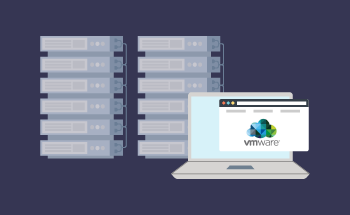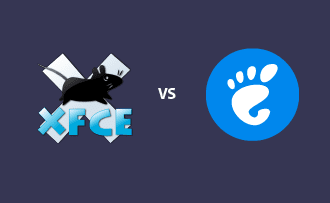Dedicated server for gaming: what it is and why you need it
10:23, 05.01.2022
Multi-player games require lots of resources for smooth performance. Otherwise, you will most likely have dropped games, slow time loading, loss of files, and other issues. With the choice of the dedicated server for hosting, you will get the best performance characteristics and in such a way the stability of your gaming experience will be significantly improved.
Here, you will learn more about the importance of dedicated servers for gaming and deep explanations of all the functionality.
What Exactly Constitutes a Dedicated Gaming Server?
A dedicated gaming server is a physical machine that is needed for the hosting of a certain game. With the usage of a dedicated server for this purpose, the gaming experience of the players becomes much more stable, and reliable, and the game will function faster.
A dedicated server is an awesome variant for the gaming experience for a variety of reasons, the main ones are more storage and memory. That’s why online players will always have enough resources for proper gaming.
Mechanisms Behind Online Multiplayer Game Hosting
There are a couple of mechanisms that are behind the multiplayer gaming experience. Peer-to-peer and client-server models are considered to be the most traditional and have several disadvantages that can directly influence the gaming experience of online players. The models are considered to be non-customizable and we will discuss their functionality later on.
The experience with a dedicated server is totally the opposite of the traditional options. It is mainly because you can regulate the number of online players and get flawless gameplay.
Client-Server and Peer-to-Peer Hosting Models
The client-server approach functions on the principle where all the servers are controlled by one host and more often than not it is one who publishes the game. All the players in such a situation have less control over the configuration aspects. Moreover, if the main server has some troubles, then obviously all the users will notice this fact.
The next variant is P2P, in this model, one random player is responsible for hosting the game. This player is either the one who has the best connection or who was the first to join the server. The issues come when the main player who is hosting the game experiences trouble with the internet connection.
Inner Workings of Dedicated Gaming Servers
Now when you have a basic understanding of how standard models function and what potential issues can happen with these models. As for the dedicated gaming server, it is a dedicated machine that offers access to more memory resources and storage, that’s why players can:
- Manage the access to the gameplay. It is way easier to control who can join the game by organizing private events or banning some players for rules violations.
- Exclusive server’s characteristics including needed tools, OS, choice of the required game settings, and more.
- Customizable rules according to the number of online players, winning parameters, or regulations according to the equipment.
Dedicated Servers in the Gaming Realm
Usually, multiplayer games include clients and a host. The users are in the gameplay and they don’t have any responsibilities according to the hosting solution. At the same time, hosting is crucial for inform transition that is needed for the right game synchronization.
In gaming, the host of the game (usually the one who entered the game first) is responsible for such factors as:
- Interaction of the online players.
- Rules.
- Activity of the gamers.
- Location of each online player in the game.
- Score and more.
The physical machine of such a gamer needs higher bandwidth, more memory, and generally more resources because the more players will be in the game the more power will be required. When the main player has troubles with the internet connection or weak machine characteristics, it will for sure influence the gaming experience causing various bugs.
With the usage of dedicated gaming servers, players are no longer hosts. All the gamers connect to a physical server that obviously has higher performance characteristics than usual computers. Moreover, the administrator has so much more freedom according to:
- Change the rules of the game (adding winning details, some maps, adding or excluding some rounds, and way more).
- The number of gamers. It is crucial to control this number, because with the increased number the processing time is significantly influenced.
- Server configuration. There is a possibility to select optimal game config, select OS, use required tools, and much more.
Benefits of Opting for Dedicated Gaming Servers
Except for the already mentioned high customization of the dedicated gaming server, there are lots of other pluses that you are getting for your gaming. Let’s discuss these benefits in detail.
Unmatched Performance Excellence
Because of the availability of resources and the best hardware characteristics, players can forget about the troubles with connection, lags, and other issues with gaming. Lots of gamers can be in the play simultaneously without influencing the performance. In addition to this, gamers don’t need to bother about the overheating of the servers, because most data centers have perfect cooling systems.
Rock-Solid Infrastructure Dependability
Nothing can be better than a dedicated server for the ideal gaming experience. When choosing a dedicated server, you don’t need to worry about a variety of things that will be controlled by the hosting provider. The main ones are connected with the monitoring of the server, regular backups, maintenance of the servers, cooling, and much more. Due to rock-solid Infrastructure, online players can be sure of the perfect gameplay.
Say Goodbye to Corrupted Save Files
A dedicated gaming server is the best possible choice in case you need properly saved files. The progress of the game is regularly saved, so you won’t have any issues with more traditional approaches to the gaming servers. The savings of the files are especially important when you have a prolonged multiplayer game.
Elevated Levels of Security Assurance
A dedicated gaming server offers the best possible security characteristics and here is why:
- When the server is fully used for gaming purposes then there are fewer risks connected with online attacks. The access to the dedicated server is only possible via the game and there are no other options.
- The administrator of the server has full control over the entries. That means unidentified users will not get access.
- Most web hosting providers offer the best security characteristics that users are getting right away. For instance, such measures are connected with regular backups, firewalls, and also DDoS protection.
- The security is way better than in more traditional gaming models so players can enjoy a smoother experience.
Scrutinizing the Drawbacks of Dedicated Gaming Servers
Before considering the dedicated server for gaming purposes, you should clearly understand both the pluses and minuses of this hosting solution.
The first major disadvantage of the dedicated server is its price. This option is considered to be really expensive when comparing it with the other available variants. Of course, you can search for some discounts and purchase an annual package to save a couple of dollars, but generally, this is a rather expensive option. However, purchasing a server and setting it up at home might be even more expensive.
The constant monitoring and management of the server might not be the easiest task. Players will definitely need some basic technical skills to set up and manage the dedicated gaming server. Installing additional security software or making other adjustments is not the simplest thing for a new user.
Games That Thrive on Dedicated Gaming Servers
The dedicated gaming server perfectly suits the games with a higher workload that requires more memory and storage as well as bandwidth. The dedicated server is a great option for Rust and Minecraft, and for other games to guarantee better performance with a smooth gaming experience. However, not every online player can benefit from renting a dedicated server.The list of games that definitely require the usage of a dedicated server is the following:- ARK- Minecraft- Factorio- Rust- Valheim- And lots of other games with a high workload.As you see, the dedicated gaming server will be a perfect choice for improving gameplay and making the experience even more enjoyable and smooth.
FAQ
Optimal RAM Capacity for a Dedicated Server?
The choice of the RAM capacity is a rather individual thing and depends on a variety of factors. If you want to understand some basic requirements, then probably the lowest possible number should be 16GB. When speaking about multiplayer games the minimum RAM starts from 32 and has no limitations because the hardcore games require lots of resources as well as the latest hardware characteristics. If you need some recommendations, you can contact the support team of the hosting provider and you will get detailed feedback about the choice of the needed dedicated server.
Which Server Configuration is Better for Gaming?
The most ideal choice for gaming is of course a dedicated server. With this hosting solution, you are getting fully dedicated resources for your needs such as storage, CPU, and RAM. So, you can control all the processes on the server as well as manage everything according to your requirements. However, it is a pricy option and if you don’t have a huge budget for the dedicated server, you may try VPS. This is a cheap option, but you have less resources.
What's the Price Tag for Dedicated Servers Tailored for Gaming?
If you have a couple of friends and would like to have the server for the minimal possible sum then probably the right choice for you is VPS. This is a cheap variant where you are only investing a couple of dollars for a month of usage. For those players with a huge community, a Virtual Private Server may not be enough in terms of resources so a dedicated server is a good variant. There are various plans of dedicated servers so you can select what works better for your needs.
Peer-to-Peer Hosting to Dedicated Gaming Servers: Which is Better?
If you are searching for a cheap option and don’t need high-performance characteristics then you can perfectly use a P2P server. It suits the local gameplay and you will not overpay. Nevertheless, P2P relies on one host and that means if something goes wrong with it, you will have the worst possible gaming experience.
As for the dedicated server, there won’t be such issues because this option is considered to be the most stable among other variants. Moreover, you can scale the resources when it is needed and also improve the performance and the gameplay tremendously. With the choice of the dedicated server, you can be sure that there won’t be any troubles with the security, scalability, or reliability of the server.


